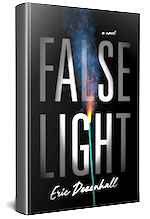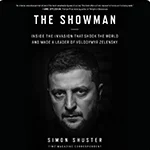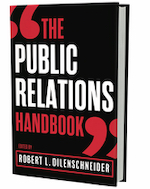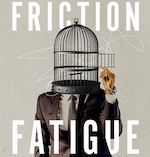 |
“If Mark David Chapman had social media, he wouldn’t have shot John Lennon—he would have tweeted about him.”
That’s a quote from Sandy Petty (aka “Fuse"), the protagonist of Eric Dezenhall’s latest work of fiction, “False Light”.
Fuse is a middle-aged reporter at the crossroads—about to be pinched out of existence by the inanity of social media and an aggressive young reporter, while simultaneously dealing with a salty teenage daughter, a father with dementia who has tortured him for years, doubts about why his wife is still with him and frequent lapses into bittersweet memories of his childhood and an unreturned romantic advance on top of admiration, jealousy and resentment for a friend he has known for years who comes to him for help.
Dezenhall takes Fuse on a mission to avenge that friend’s daughter, the victim of a sexual predator who plies his trade as a gotcha investigative reporter on a YouTube-like platform that has turned him into a media darling.
Pacho Craig’s MO is to corner unsuspecting targets on video with questions that dance around direct allegations but put his targets in an awkward and very damning “false light.”
Fuse is old-school. Still rockin’ a flip phone—the story takes place pretty much in current day—and generally going through his day stumbling around things he can’t use, or as Dezenhall coins it, TICU (things I can’t use).
But he taps into the savvy he developed from years of investigative reporting for a Washington Post-like paper to make things right.
A subplot of the story explores an incestuous relationship between his paper and a powerful PR firm that Fuse unwittingly sticks his nose into, placing him squarely in the sights of an aggressive young reporter on staff hellbent on putting old Fuse out to pasture.
Along the way, Dezenhall reveals insights into how to understand and handle the media he must’ve used many times for clients in his real-life crisis communications practice.
Fuse’s immediate advice to his friend is to not go to the police on behalf of his daughter, who could quickly have her own reputation defamed in the media.
Dezenhall takes a hard look at the #metoo movement through the eyes of Fuse, whose brutally honest assessment is that things don’t always work out in the end.
The story takes off when Fuse enlists former colleagues and some shady characters he’s depended on for years in his own reporting to set up the big sting to take down Pacho.
I’ve lived in the D.C. area for 30 years and always enjoy movies and books that visit local spots I know well.
Dezenhall’s story moves around from downtown D.C. and a steak restaurant on Connecticut Ave. (where he once took me out for lunch in the early 2000s) over to Georgetown and the C&O canal along the Potomac River and up to Chevy Chase and the tony Maryland suburbs—home to fancy country clubs and wealthy lobbyists and lawyers inhabiting houses far too big for their own good.
The story has an “It’s a Wonderful Life” theme to it, with Fuse coming to grips with his own frailty and life choices as he happily and skillfully engineers an unconventional yet appropriate version of justice for the predator that took advantage of his friend’s daughter.
Not bad for someone afraid to push a floor button on an elevator. (You’ll have to read the book to get that reference.)
Dezenhall is CEO of his own crisis communications shop, Dezenhall Resources, in Wash., D.C. He makes regular appearances on major cable TV and radio outlets in addition to writing for the Daily Beast and Huffington Post.
This is his seventh novel. To pre-order the book, which will be released on Feb. 23, click here.


 Time correspondent Simon Shuster’s “The Showman” demonstrates how Ukraine president Volodymyr Zelensky’s masterful knowledge of PR tactics and the power of propaganda transformed him from comedian into a respected world leader.
Time correspondent Simon Shuster’s “The Showman” demonstrates how Ukraine president Volodymyr Zelensky’s masterful knowledge of PR tactics and the power of propaganda transformed him from comedian into a respected world leader. Iuliia Mendel, who served as press secretary for Ukraine president Volodymyr Zelensky from 2019 to 2021, will release a book called “The Fight Of Our Lives” in September, published by Simon & Schuster’s One Signal Publishers.
Iuliia Mendel, who served as press secretary for Ukraine president Volodymyr Zelensky from 2019 to 2021, will release a book called “The Fight Of Our Lives” in September, published by Simon & Schuster’s One Signal Publishers. Robert Dilenschneider, former CEO of Hill and Knowlton, is releasing the fifth edition of The Public Relations Handbook on Feb. 15.
Robert Dilenschneider, former CEO of Hill and Knowlton, is releasing the fifth edition of The Public Relations Handbook on Feb. 15.  Big Advertising may be down for the count, but the power of marketing lives on. That’s the big takeaway from Paul Dyer’s “Friction Fatigue,” a look at what advertising’s downward spiral means for “future-focused brands."
Big Advertising may be down for the count, but the power of marketing lives on. That’s the big takeaway from Paul Dyer’s “Friction Fatigue,” a look at what advertising’s downward spiral means for “future-focused brands." Sabrina Horn, the high-tech PR guru who sold her Horn Group to Finn Partners in 2015, has published “Make It, Don’t Fake It.”
Sabrina Horn, the high-tech PR guru who sold her Horn Group to Finn Partners in 2015, has published “Make It, Don’t Fake It.”


 Have a comment? Send it to
Have a comment? Send it to 
No comments have been submitted for this story yet.